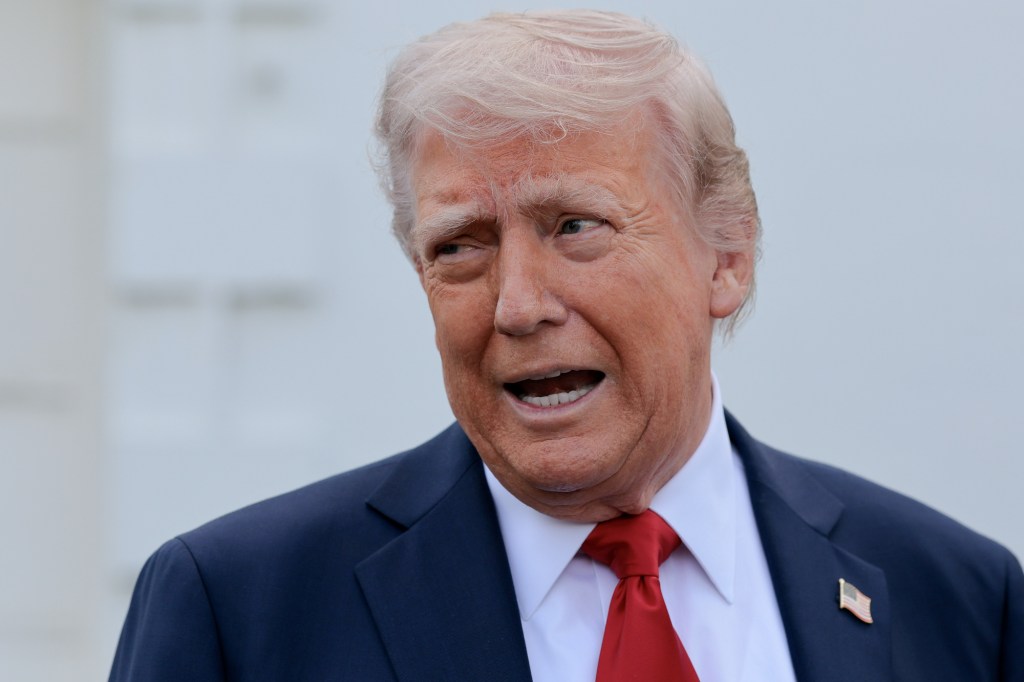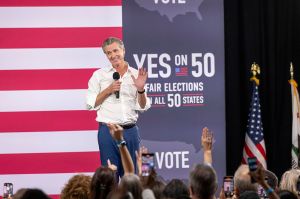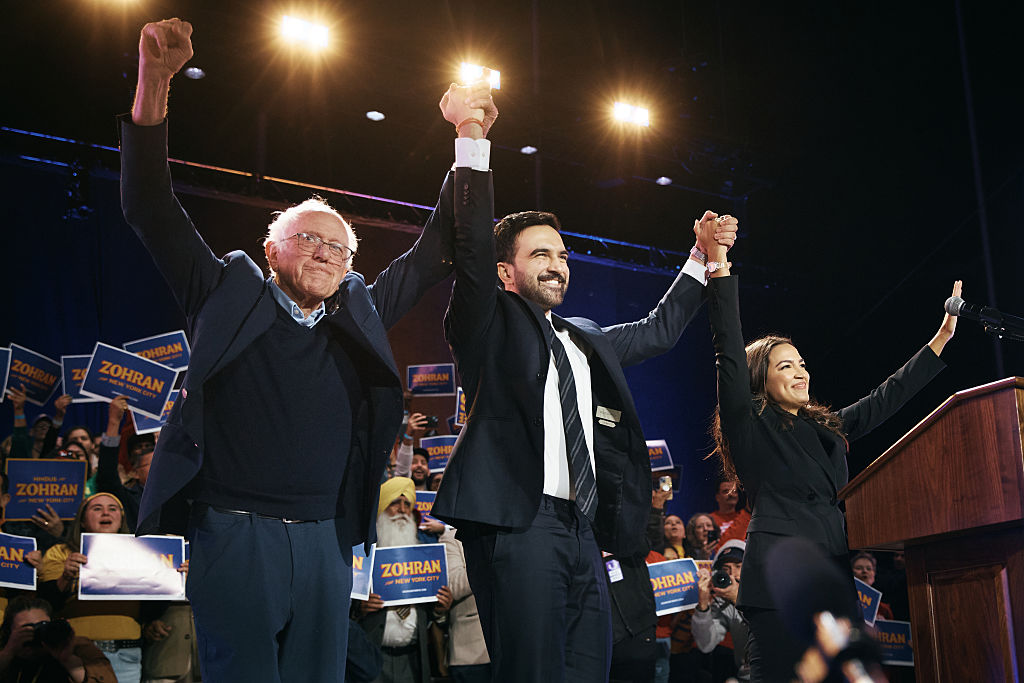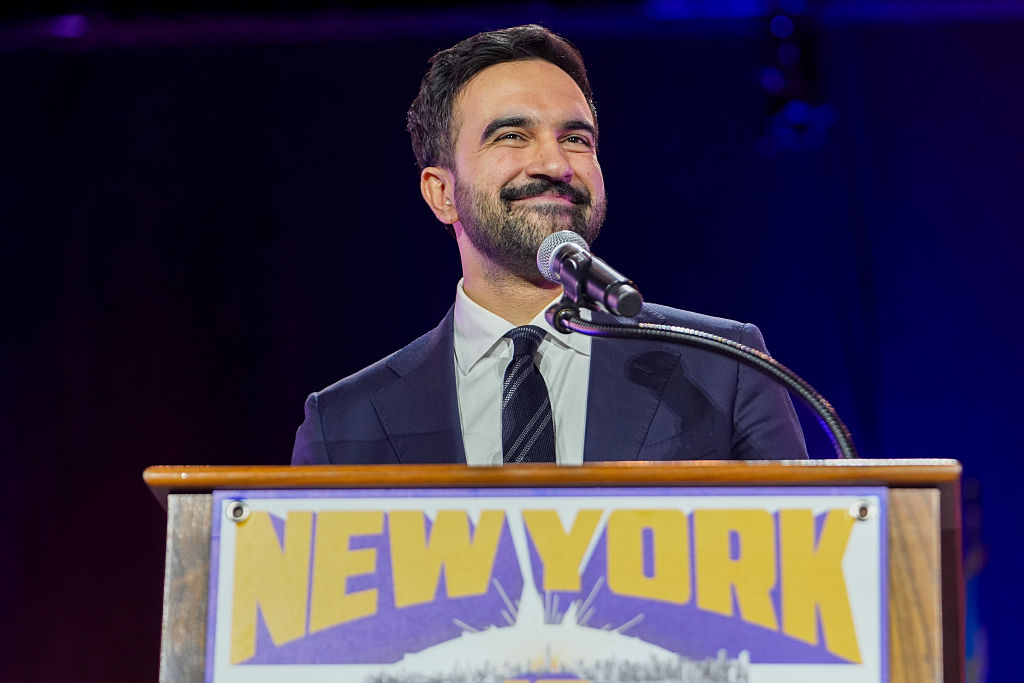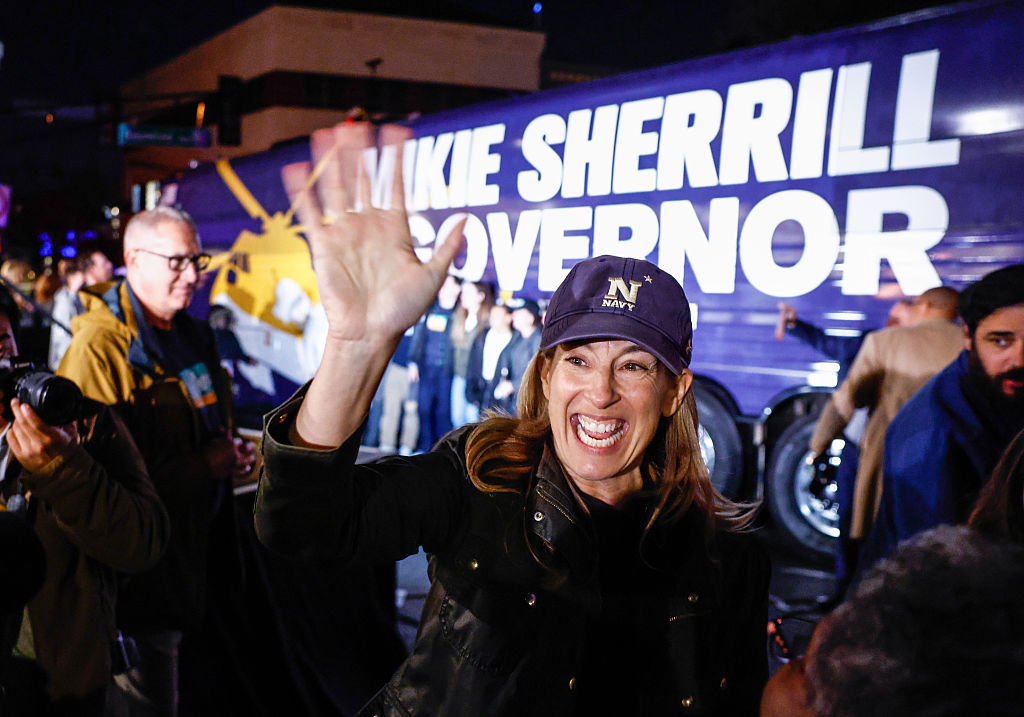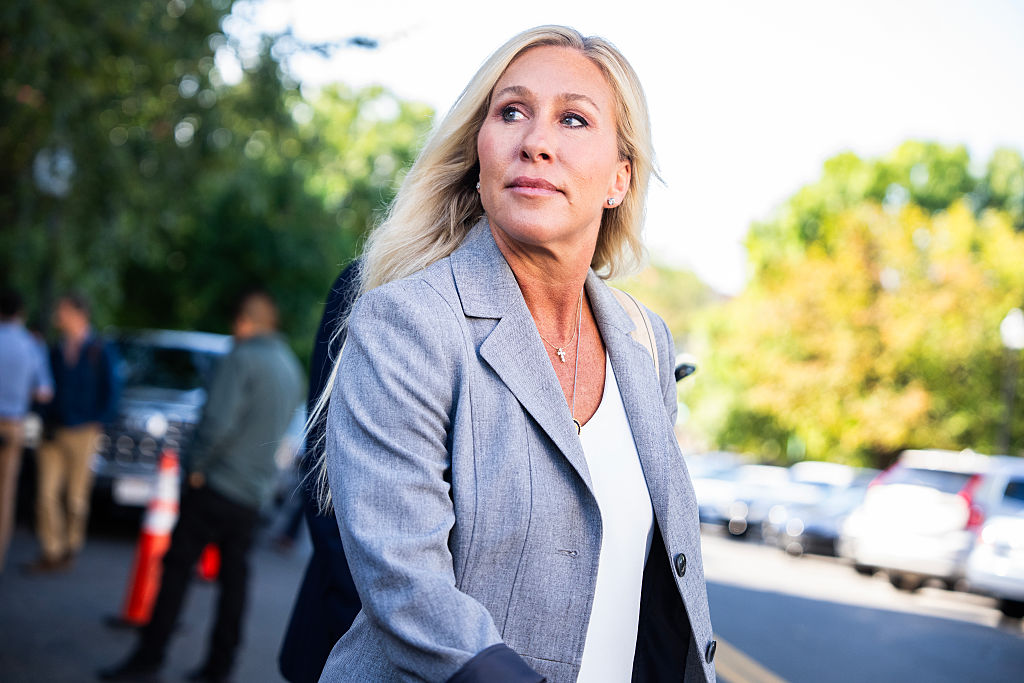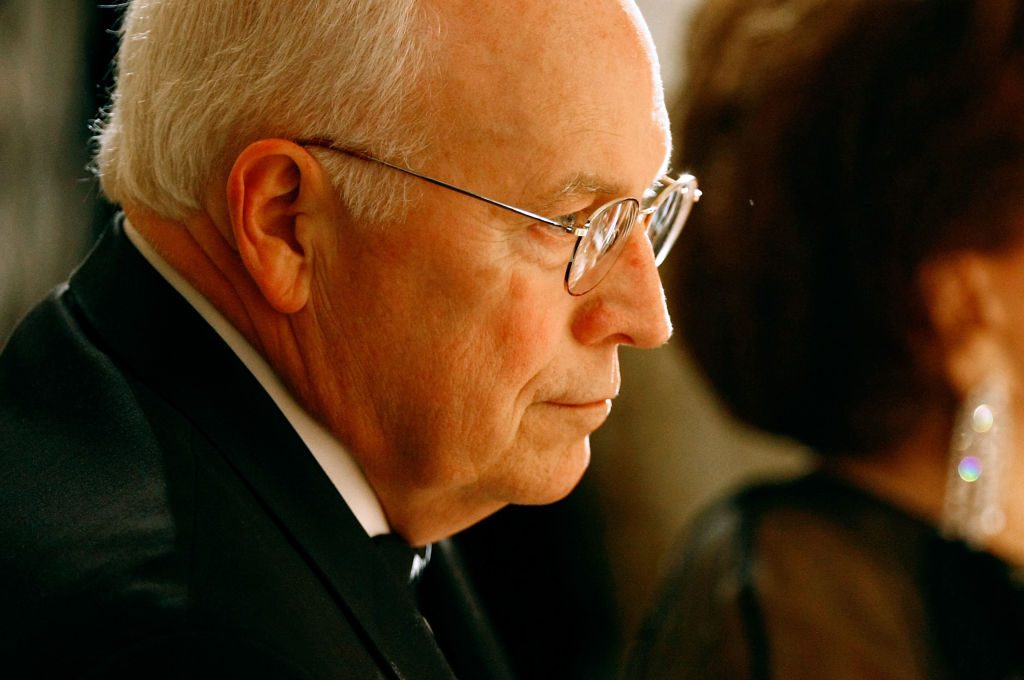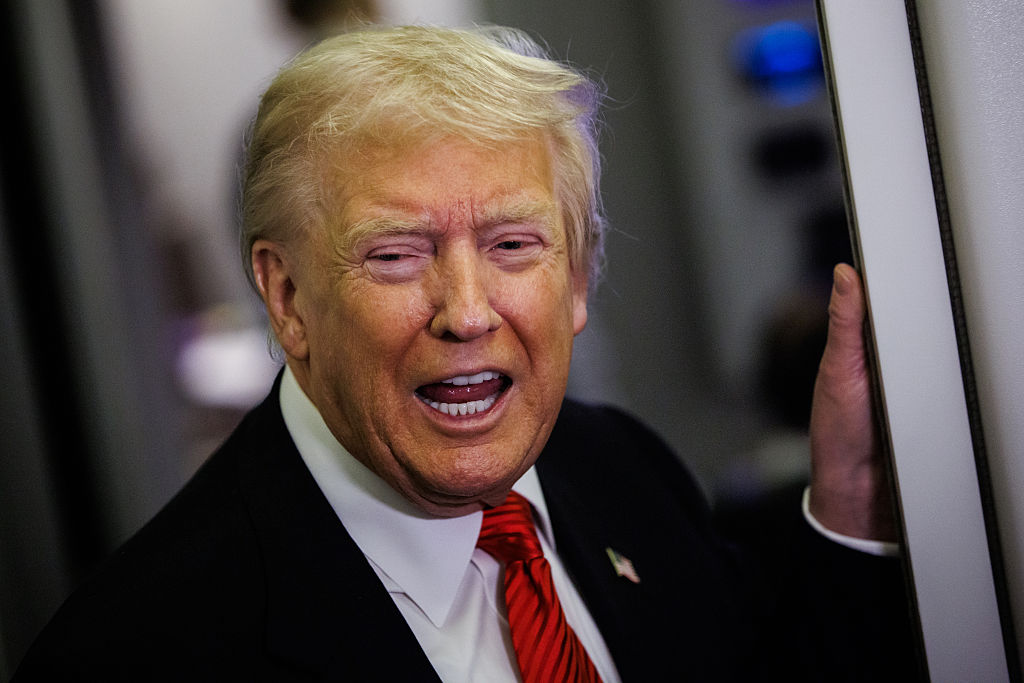Theodore Roosevelt was a believer in speaking softly but carrying a big stick. But where does that leave Donald Trump, who today resorted to all-caps plea, or perhaps demand, that Putin “STOP!” his offensive operations against Ukrainian cities – yet backed up his entreaty with precisely nothing?
“I am not happy with the Russian strikes on KYIV,” Trump wrote in a post on Truth Social after footage emerged of civilians buried under rubble in Kyiv, Kharkiv and Odessa. “Not necessary, and very bad timing. Vladimir, STOP!”
The message was a rare instance of Trump directly criticizing Putin. Indeed, just a few hours before the latest Russian strikes on Ukraine’s capital, Trump released a detailed, multi-paragraph statement criticizing President Volodymyr Zelensky for supposedly blocking a peace deal. Yet despite the angry capitals, Trump has, as yet, shown no sign of applying any of his characteristic bullying tactics against Putin at all.
In fact, Trump carries a far bigger stick than Teddy Roosevelt could ever have dreamed of. For all the talk of US decline and decadence, the military and financial resources at Washington’s command are unprecedented in history. Compared to the might of America, Russia is a midget with an economy roughly one fifteenth the size – one that also controls the world’s banking regulations and global reserve currency. Trump, if he wished, could cut Putin’s war economy off at the knees by imposing secondary sanctions on buyers of Russian oil and gas, or by blockading Russian ports. Trump could protect Ukraine’s cities by authorizing the deployment not only of more Patriot missile batteries but also of THAAD – the state-of-the-art Terminal High Altitude Area Defense systems designed precisely to intercept the kind of cruise and ballistic missiles the Kremlin is currently launching against Ukraine. Or he could increase deliveries of ATACMs cruise missiles and authorize their use against Russian energy or transport infrastructure. Yet Trump has done none of these things, nor has he seriously threatened them (with the exception of a single mention of secondary sanctions against Russia last month).
There are sound reasons for not wishing to escalate the conflict, and there are unsound reasons. The soundest reason of all is that the US should be wary of entering a direct military conflict against a nuclear-armed Russia. Avoiding a kinetic war with Moscow has been official American policy from Obama through Biden and two Trump administrations.
While nobody believes that Putin would be suicidal enough to send ICBMs to destroy Washington, the risk that Russia could use a low-yield, tactical nuclear attack in the field has never been zero. The rules for tactical nuclear warfare are as yet unwritten. The moment they are used, the world will enter a new and highly dangerous era (not least as tensions rise between tactical-nuke armed India and Pakistan). Therefore, Trump is perhaps correct not to threaten to allow Kyiv to use US missiles to wipe the oil terminals of Novorossiysk off the map, for instance, or to block Russian oil from passing the Danish straits – both of which would formally speaking constitute acts of war.
But there are plenty of other ways to put together a strategy that would put pressure on Putin without actually getting the US involved as a combatant. One is the aforementioned secondary sanctions on oil importers like India, China and (yes) the European Union. Another would be a much harsher price cap on exported Russian oil – which currently, and absurdly, stands actually above the market price – and serious and sweeping sanctions on the ships that transport it.
Yet instead Trump has chosen a different path – the path of peace through economic partnership. Trump and his advisers appear to believe that Putin can be enticed out of his war on Ukraine by the offers of major economic upside in the form of oil and minerals deals. Or as he wrote on Tuesday:
HOPEFULLY RUSSIA AMD UKRAINE WILL MAKE A DEAL THIS WEEK. BOTH WILL THEN START TO DO BIG BUSINESS WITH THE UNITED STATES OF AMERICA … AND MAKE A FORTUNE!
Recent talks in Washington and St. Petersburg involving Trump envoy and real estate investor Steve Witkoff, the head of Russia’s sovereign investment fund Kirill Dmitriev and Putin himself have been full of pie-in-the-sky fantasies such as the joint exploitation of Arctic oil and gas reserves.
Yet if Trump thinks that Putin gives a damn about money – his own, other people’s, or his nation’s – then he is very wrong. Putin was utterly unconcerned that invading Ukraine would crash his currency and result in swingeing economic sanctions (though he was reportedly surprised at the number of western companies who pulled out of Russia). Putin is concerned with protecting Russia from the encroachments of Nato, bringing ethnic Russians in neighboring countries inside the fold of Moscow’s control, and of sealing his own historic role as a uniter of Russian lands and rebuilder of national pride. Sure, Putin and his inner circle have all helped themselves freely to the material spoils of power, generating a whole generation of Kremlin-crony bureaucrat-billionaires. But rather than seeing personal enrichment as the main goal of being in power – as perhaps Trump does – Putin has an old KGB officer’s contempt for “kommersy,” or businessmen.
Trump says he was “not happy” about Russia’s overnight strikes on Ukraine and complained that “5,000 soldiers a week are dying.” Instead Trump should have been even more unhappy that Putin is roundly ignoring his attempts to end the war by essentially parroting all of Putin’s talking points about recognition of Crimea and keeping Ukraine out of Nato. Every missile that Putin sends crashing into Kyiv is a firm “what are you gonna do about it?” And Trump’s answer is, so far, nothing more terrifying than switching to CAPS LOCK.
Trump fancies himself an expert on “the Art of the Deal.” Yet in dealing with Putin he gave away all his cards when talks had barely begun. Can he be surprised that Putin has taken him for a blowhard who is all mouth and no trousers?



